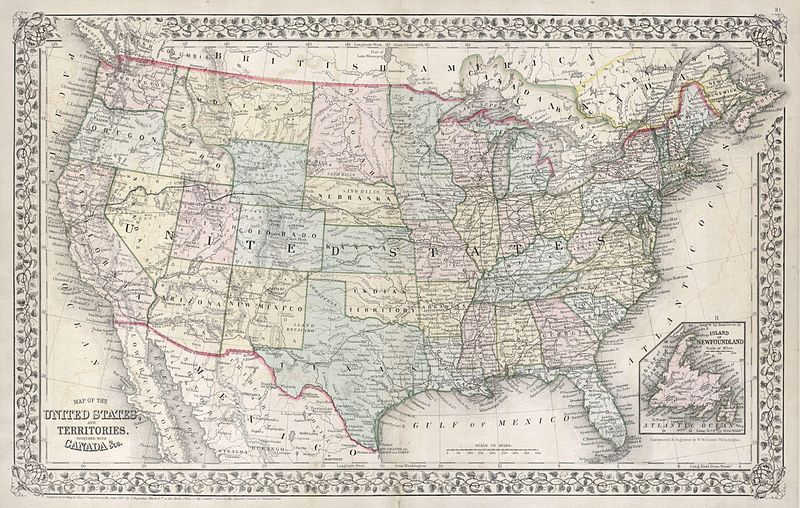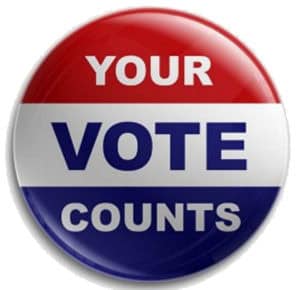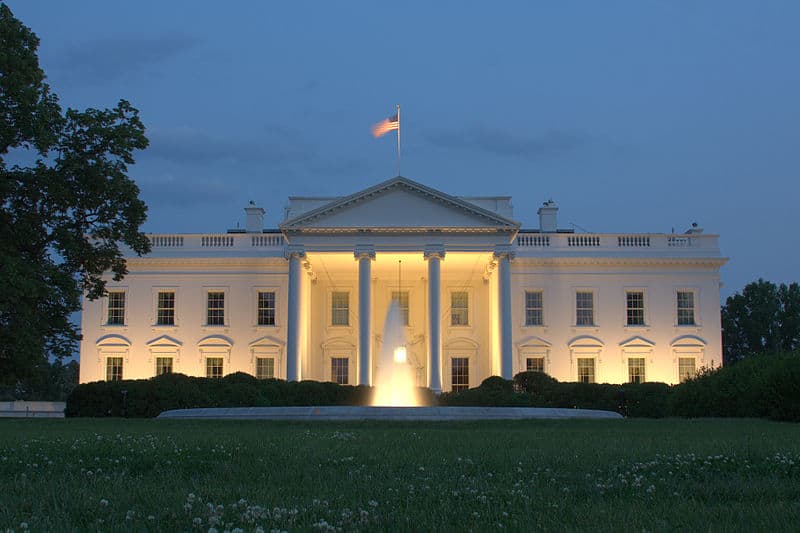Visit our “How to Vote Quickguide” for an outline of the resources given in this article.
Schedule Your Registration and Elections
There are many threats to science today. Spreading doubt and maintaining ignorance is profitable to certain powerful interests. Wealthy billionaire leaders of the fossil fuel industry pollute the natural environment, soil, water and air, and poison its inhabitants. They profit directly from anti-science propaganda. They pay off politicians to vote into law policies that undermine education, health and science, in a conscious effort to advance their private interests. It is important for citizens to take political action for science.
In order for democracy to work, members of Congress must represent their constituents in Congress. A constituent is a voting member of the body that elects a candidate. Some districts are represented by members of Congress who represent only those who can pay for representation.[1]
In fact, it might be said that as a rule no congressperson actually cares about their constituents, except the ones who can contribute large sums.[2] Some consider this to be corruption in politics, because it works out to be nothing more than a system of bribery, and completely defies the entire point of democratically elected officials.
The vigilant citizen will schedule registration and elections in local, county, state and national spheres on a physical calendar or a reminders program on the computer. Some websites, like Vote.org, will send voting reminders via email. Give yourself a wide berth, especially if you are voting by mail with an absentee ballot, so be sure to check your state’s registration form for the deadline.
Government cannot be left to chance. Scientists and rational citizens must take their civic duty very seriously and become active in politics. Most people do not vote. This means that organized voters have a major impact on elections and subsequently, on government. We – you and I – have to make scientists and rational thinkers an influential force in politics. That starts here, with education, and begins to have an impact at the voting booths.
These are historic times. The scientists running for public office and those who support them are participating in a process that will be remembered for all time. We are living in the hallowed era when humankind transformed itself from a species governed by private interests, raw emotions and uneducated opinions into a people governed by science, evidence and objective critical thinking.
This is as great a change as the transformation from the Dark Ages to the Renaissance, Enlightenment and Scientific Revolution. In this sense it is an amazing time to be alive. I want to be a part of this monumental change in humanity. You can be a part of it too.
[1] https://www.alternet.org/story/153583/10_ultra-
rich_congresspeople_who_%27represent%27_some_of_the_most_
financially_screwed_districts
[2] https://act.represent.us/sign/the-problem

Know Your Political Parties
Get to know the policies of the political parties that govern your nation. In the U.S., the best informational sources for the two major parties are the websites of the Republican National Committee and the Democratic National Committee. The Republican Party, known as the Grand Old Party or GOP, is known as the conservative party, while the Democrats are generally more liberal. Wikipedia offers a list of U.S. political parties, which includes the progressive Green Party and the far right Libertarian Party.
Some political commentators view voting for a third party or independent candidate as throwing away a vote, because it is unlikely that this kind of candidate will win an election, due to the dominance of the two main political parties. The conscientious voter, however, will want to understand the broad scope of positions being proposed by candidates.
Third party and independent candidates often run on one or more specific issues that define their campaign. Often, an issue that previously was considered out of the political mainstream gains increased traction, becomes more acceptable to voters, and gets adopted by one of the major political parties.
Deciding to vote for a third party candidate should be based on a careful review of the options and the consequences of that vote. For example, if a major party candidate is far ahead in the polls, voting third party can demonstrate the acceptability of the third party candidate’s positions. However, when the two major party candidates are closer in the polls, you might wish to consider whether you, your community, and the country at large will suffer should the wrong candidate be elected. In this case, it is expedient to vote the least bad of the two major candidates.
GOP Democrats Green Party Libertarian Party
The main problems associated with the political process are outlined in my article soon to be published: “Scientists’ Guide to American Government” (Link Under Construction.)

Voting for Your City Council
Find out when your city council holds meetings by visiting their website, which can be found easily by typing the name of your city and the words “city council” into your search engine, like Google, Bing or Yahoo. To find election dates and polling sites, you might have to search for the Board of Elections or Board of Election Commissioners online.
For example, the New York City Council website and the Board of Elections in the City of New York website post the relevant information for residents of NYC. The City of Chicago website and the Chicago Board of Election Commissioners website describe the government of Chicago and provide voter information. New England towns, like Salem, Connecticut, often have instead a more democratic Town Meeting form of government with a Board of Selectmen. The Borough of Stonington, CT is governed by the Board of Warden and Burgesses. You may find government and voting information on your municipality’s website.
To get information about your municipal elections, check out the Ballotpedia website, and for U.S. mayor election results go to usmayors.org.
Voting for Your County Officials
The county is an administrative district within a state. Counties normally contain towns and cities, but municipalities may cross county boundaries, and New York City is divided into several counties known as boroughs. County equivalents include the District of Columbia, various independent cities, boroughs in Alaska and parishes in Louisiana. The county is governed by a body known as a board of supervisors, county council, county commission, commissioner’s court or other attribution.[1]
County governments can be restricted to sheriff’s departments and judicial court districts, as in New England, leaving most government in the hands of the state and municipalities. Counties may also perform many services, from public utilities and hospitals to roads and law enforcement. They traditionally collect property taxes and maintain parks and recreational venues. Some counties may provide a wider range of services, such as libraries, museums, and social services.[2] The county government operates out of the county seat, often the county courthouse.
The county executive, the head of the executive branch in charge of the various departments of county government, may be elected or appointed, and governs according to the program decided by the county’s elected officials. A county administrator or manager (usually with a master’s degree in Public Administration) may be hired instead of a county executive to perform duties without the implications of party politics. County commissioner positions include county registrar (clerk or recorder), treasurer, auditor, assessor, comptroller and district attorney.[3] The National Association of Counties acts as a resource for these officials.
Los Angeles County has the largest population of any county in the United States; voter information and requirements for running for office are detailed on the Los Angeles County website. The California State Association of Counties website links to California county websites.[4] Americans can find detailed information about their county government and elections on their county’s website.
[1] https://en.wikipedia.org/wiki/List_of_United_States_counties_and_county_equivalents
[2]http://www.naco.org/sites/default/files/documents/
What%20Do%20County%20Commissioners%20Do%20All%20Day.pdf
[3] https://en.wikipedia.org/wiki/County_(United_States)
[4] http://www.counties.org/county-websites-profile-information

Voting for Your State Legislatures and Constitutional Officers
The United States of America is comprised of fifty states. The Constitution of the United States delineates the powers of the states in relation to the federal government. Each state has its own state constitution and state statutes, with the checks and balances of three branches of government.[1] The executive government is headed by the governor, and normally includes a lieutenant governor, a secretary of state, an attorney general, [2] a state treasurer, and a state auditor.[3] Each state has a supreme court and judicial system and judges are often elected rather than appointed.[4]
For facts about your state government and elections, check the website of your secretary of state. The Texas Secretary of State, for example, has election information on its website and on a separate website just for voting resources. The Commonwealth of Pennsylvania website also has a voters’ guide, which opens with directions on how to register to vote online for primary, special, municipal and general elections.[5] Various sites with voting information, like vote.org, can be found by searching your state name and “vote” in a search engine like Google.
In every state except California, Louisiana, and Washington, each political party holds a primary election to choose the most viable candidate for their party to run for the general election (or by-election, held when an office has become vacant between general elections).
Term lengths and term limits for constitutional officers differ between states. All but two states hold gubernatorial elections every four years, and most governors have term limits, although some do not.
The state legislature is called Legislature, General Assembly Legislative Assembly or General Court. The body has an upper house, usually called the Senate, and a lower house, normally called the House of Representatives. There are ninety-nine legislative chambers with a total of over 7,000 state legislators. Only fifteen legislatures have term limits, most of them eight years. Term lengths for legislators are either two or four years, depending on the state. [6] [7] [8] [9] The majority of general elections are held on even years. Most state legislatures convene in January and session length varies among states.
[1] https://en.wikipedia.org/wiki/State_constitution_(United_States)
[2] http://www.naag.org/naag/attorneys-general/whos-my-ag.php
[3] https://en.wikipedia.org/wiki/List_of_U.S._statewide_elected_officials
[4] https://en.wikipedia.org/wiki/State_supreme_court
[5] https://www.pa.gov/guides/voting-and-elections/
[6] https://en.wikipedia.org/wiki/Comparison_of_U.S._state_governments
[7] https://en.wikipedia.org/wiki/State_governments_of_the_United_States
[8] https://en.wikipedia.org/wiki/State_legislature_(United_States)
[9] https://ballotpedia.org/State_legislative_elections,_2018
Voting for Your Congressional Representative and Senators
Every American should read the United States Declaration of Independence, adopted by the Second Continental Congress on July fourth, 1776, a date celebrated annually as Independence Day. The kingdom of Great Britain, a monarchy centered on an island across the Atlantic Ocean, ruled the thirteen original colonies until they united and declared themselves sovereign states at war with Great Britain in 1776. The Thirteen Colonies defeated Britain in the War of American Independence in 1781. Britain recognized their independence and in the peace treaty of 1783 the sovereignty of the states was recognized to extend from the East Coast to the Mississippi River.
General George Washington was commander-in-chief of the Continental Army, presided over the Constitutional Convention in Philadelphia in 1787, and was elected the first President of the United States of America. Every citizen of the United States should also read the United States Constitution, ratified by the states in 1788, and put into effect in 1789. The Bill of Rights, the first ten amendments to the Constitution, was adopted in 1791.[1] The Constitution describes the framework of the national government.
The United States is a federal republic. It is a federation of states, which means that the states have some independence in their affairs, but answer to a central government. A republic is a form of democracy wherein citizens elect representatives to represent them in government, and rather than being subjects of a monarch, the people elect a President as head of state. The Constitution provides checks and balances by dividing the United States federal government into the three branches: executive, legislative and judicial.
The legislative branch is further divided into two chambers, an upper house called the Senate, and a lower house called the House of Representatives. While both chambers are known collectively as “Congress,” the lower house may also simply be referred to as “Congress.” In the United Kingdom the House of Commons is the greater power in relation to the House of Lords, the Crown, and the judiciary. Similarly, Article One of the U.S. Constitution implies that the greatest power lies with Congress, the power of creating laws. Most of these laws can be found in the United States Code.
The Senate confirms presidential nominees and approves presidential appointments like cabinet officials and Supreme Court justices. It ratifies treaties negotiated by the President and ultimately decides cases of impeachment, except when the chief justice presides over presidential impeachment trials.[2] Both houses meet in joint session to count electoral votes after a presidential election. The House initiates the process of impeachment, initiates bills to raise revenue and elects the President when there is an Electoral College tie.
Congress controls the federal budget with the power of the purse when it lays and collects taxes, duties, imposts and excises; and pays debts. It regulates commerce with foreign nations and among the states; coins money; and fixes standards of weights and measures. It establishes post offices and post roads, issues patents, trademarks and copyrights, and forms courts. Technically, only Congress can declare war, raise and maintain a military, although the practical application of this rule is the subject of much debate.[3] [4] Committees can be formed to investigate and oversee the executive branch in what is called Congressional oversight.
Congress is limited by the judicial branch in that under judicial review the Supreme Court may declare a congressional law unconstitutional. However, Congress may propose constitutional amendments to overturn judicial decisions. The President can veto a law, but Congress can override that veto.

Congress and Senate (Continued)
There are 535 voting members of Congress who assemble in the Capitol Building in the nation’s capital city, Washington, D. C. The House of Representatives is comprised of 435 members and the Senate has 100 members. A new Congress meets every two years. The Constitution provides that Congress meet at least once each year and Congress generally meets during two sessions per term, convening in January and adjourning in December. They may also meet on other sessions,[5] but no house may meet outside of the Capitol without permission from the other house.
Much of the work of Congress is done in committees, which are normally open to the public. House and Senate reports are published and accessible in online databases.[6] [7] [8] The media covers hearings of special interest to the public.[9] Check this link for a committee meeting calendar.
The members of the House of Representatives serve a congressional district created by Congress according to population size as determined by the United States Census. This often incorporates gerrymandering, the manipulation of district boundaries to benefit the political party in power. Members of Congress are elected in general elections in November of every even-numbered year. Two senators represent each of the fifty states. Senators serve six year terms, and approximately 33 senatorial seats are contested every two years. Special elections are held to fulfill the remainder of a term when a senator does not complete the six-year term due to resignation, expulsion or death.[10]
Democratically governed countries must have informed voters in order to operate. Otherwise, the forces of corruption and tyranny usurp power from the citizens and do great injury to the people to profit themselves. Educate yourself about congressional candidates and their interests by checking the websites of Ballotpedia, Vote Smart, The Center for Responsive Politics (opensecrets.org) and the National Institute on Money in State Politics (followthemoney.org).
On November 6, 2018, the entire House and 1/3 of the Senate are up for re-election. Only you, the voter, can ensure that Congress bases its laws on science and universal human rights. Mark your calendar, register and vote.
[1] https://www.archives.gov/founding-docs
[2] https://www.senate.gov/artandhistory/history/common/briefing/
Senate_Impeachment_Role.htm
[3] https://www.cfr.org/backgrounder/balance-us-war-powers
[4] http://thehill.com/opinion/international/383404-
the-war-powers-resolution-doesnt-let-the-president-start-wars
[5] https://www.senate.gov/general/Features/Sessions.htm
[6] https://www.congress.gov/congressional-record
[7] https://www.gpo.gov/fdsys/browse/collection.action?collectionCode=CHRG
[8] https://www.archives.gov/congress/hearings.html
[9] https://www.c-span.org/congress/
[10] https://en.wikipedia.org/wiki/United_States_Congress

Voting for your President
Presidential elections, of course, are the most important races in the United States of America. The president is the chief of the executive branch of federal government, the branch that manages the government and puts laws and plans into effect. The president’s staff is the Executive Office of the President of the United States and operates from the President’s House, also known as the White House.[1] [2]
The president chooses his or her cabinet and assigns the heads of the government agencies like the National Aeronautics and Space Administration (NASA), the Environmental Protection Agency (EPA), the Department of Health and Human Services (HHS), the Department of Education (ED), the Department of Energy (DOE), and the Department of Defense (DoD). The president’s administration is crucial to the well-being of the country, having great influence on the environment, scientific advancement and national security.
After an election the incoming president makes thousands of appointments to the executive branch of government. This includes federal officers, ambassadors, and any federal judges that are needed to fill vacancies in the U.S. court of appeals or the customary nine seats on the Supreme Court of the United States. The president’s appointments must be confirmed by a majority of the Senate. The president generally has the authority to remove and replace executive officials unless Congress interferes with binding legislation.
Members of the executive branch can draft legislation for legislators to bring to Congress. The president is obligated to make reports to Congress, such as the State of the Union address, which delineates the president’s policy proposals. The president has the power of veto over congressional legislation, although Congress may override that veto with a majority vote. Congress may also decide to revise its proposed legislation to align with presidential policies and avoid the presidential veto.
The president can make law with presidential proclamations [3] [4] and executive orders. [5] [6] Executive orders may be overturned by congressional legislation. All presidential directives are subject to judicial review by the federal courts and may be found to be unconstitutional. Last but not least, the president is commander-in-chief of the United States Armed Forces.
The President (Continued)
The presidential elections are held once every four years on the first Tuesday after November 1 and the term limit is eight years. Presidential campaigns begin in time to influence primary elections, wherein the major political parties select choice candidates to compete in the party’s national nominating convention, where the party’s nominee for president is chosen. Presidential candidates from the different parties then enter the presidential election and normally hold public debates.
The president and vice president are chosen by indirect election by way of the Electoral College. In a process that varies among states, the political parties select their slate of electors, who pledge to vote for a specific candidate.[7] Some states require electors to vote for the candidate who wins the popular vote. Electors can be trusted to act as expected because they are chosen from among the party’s most dedicated members, such as party leaders or elected officials, and less than 1% of electors have ever voted against their pledged candidate.[8]
Citizens then register to vote and on Election Day cast ballots for their chosen candidates, which is actually a vote for an elector. The elector’s name may or may not be written under the name of the candidate, according to the state’s procedure. There is one elector for every representative of the fifty states, plus three for the District of Columbia, for a total of 538 electors. In most states (all but California, Nebraska and Maine) the electors are awarded to the candidate with the most popular votes in the state in a winner-take-all system.
The winning electors vote at their state capitals on the first Monday after the second Wednesday of December. Congress certifies the Electoral College vote in January. Finally, the official change of president and vice president is made at noon on January 20, Inauguration Day, in a joint session of the newly elected congress.
How to Vote for President
How to Register to Vote
How to Vote – USA.gov
[1] https://en.wikipedia.org/wiki/Executive_Office_of_the_President_of_the_United_States
[2] https://en.wikipedia.org/wiki/White_House_Office
[3] https://en.wikipedia.org/wiki/Presidential_proclamation_(United_States)
[4] https://www.whitehouse.gov/presidential-actions/
[5] https://en.wikipedia.org/wiki/Executive_order
[6] https://www.federalregister.gov/executive-orders
[7] https://www.nass.org/node/131
[8] https://www.archives.gov/federal-register/electoral-college/electors.html

How to Vote
State government determines voting registration rules[1] and voting procedures.[2] Specifics available to the voter, like times and locations, are decided by the county auditor, who oversees elections. There are in general three ways to vote.
- Voting by mail prior to election day.
- Early voting in person at select times and locations.
- Voting in person on election day at the polling place determined by the location of your home residence.
Early voting is available in thirty-seven states to any qualified voter.[3] The thirteen other states require a valid excuse for needing to vote before the polls open, which is not technically early voting, but is called in-person absentee voting, and is done by absentee ballot. Depending on the state, early voting may begin anywhere from forty-five to four days before the election, or about twenty days on average.[4]
Absentee ballots allow voters to mail in their vote.[5] Registered voters may request to vote absentee and the state will send them a ballot by mail. Twenty states require an excuse. Dates ballots may be mailed out differ by state. Oregon, Washington and Colorado mail ballots to all registered voters and no longer use in-person voting precincts.
The absentee ballot may be the only option available for military and overseas voters.[6] Anyone can vote by mail. Voters may choose to use an absentee ballot if they are ill, disabled, elderly, or if they have young children or work schedules that interfere with voting at the polls. Voters may choose this option if they wish to avoid lines, extended wait times or other unavoidable factors of voting on election day.
Early voting is the best option to absolutely ensure that one will be able to vote. Voting by mail is the next best method if and only if one is sure to return the ballot in time to meet the deadline. Missing or late ballots have been a significant problem in the past.[7] It is important to know far in advance your deadlines for registration and voting.
[1] https://www.vote.org/voter-registration-rules/
[2] http://www.ncsl.org/research/elections-and-campaigns/
election-laws-and-procedures-overview.aspx
[3] https://www.vote.org/early-voting-calendar/
[4] http://www.ncsl.org/research/elections-and-campaigns/absentee-and-early-voting.aspx
[5] https://travel.state.gov/content/travel/en/international-travel/while-abroad/voting.html
[6] https://www.overseasvotefoundation.org/vote/home.htm
[7] https://www.eac.gov/documents/2017/02/24/researchbrief_overseasvoters_7june2013/
How to Vote (Continued)
You can vote by mail by picking up the proper paperwork from the voting assistance officer at a U.S. embassy or consulate or you can just do it from home online. Go to the Federal Voting Assistance Program’s website and choose your state of residence from the drop-down menu.
This page will provide links to your state absentee voting guidelines, state election website and your local election officials. Register to vote and request your ballot by filling out the Federal Post Card Application (FPCA) or the Federal Write-In Ballot (FWAB). You can also check the status of your ballot from a link on this page.
The FWAB is the emergency backup ballot for military and overseas citizens and must be filed if one has not received one’s ballot thirty days before the election. You can usually request your ballot to be received via mail, email or fax. Check your state’s page on the FVAP website for details.
The FPCA should be completed, signed and returned to your local election official in your state of voting residence, usually the county auditor. You must submit a newly completed FPCA each year to vote in U.S. elections, which may be done at the beginning of the calendar year or within forty-five days of an election.
Your name will be added to a list to receive absentee ballots for elections held in your state during the calendar year. Depending on your state, the ballots may include all elections or just federal elections. These are normally sent off about 30 days prior to any primary, special or run-off election and forty-five days before November general elections.
Some states allow ballots to be returned via internet form, email or fax. Check your state’s page on the FPCA website for your options. If you have opted for a physical ballot, once you have received and completed it, you have a couple of options. Ballots may be mailed at your own expense by an express courier service like FedEx, UPS or DHL.
You may also drop off your ballot at a U.S. embassy or consulate to be mailed via their Diplomatic Pouch. You will need enough time to coordinate with the local post office for an envelope addressed to your local election officials with appropriate U.S. postage or buy an envelope and print your own postage-paid return envelope downloadable on the FPCA website. Visit the embassy’s website or ask a voting assistance officer for full instructions.
If you are voting in person, find your polling station HERE.
Make sure that you bring a valid ID with you to the polling station. Requirements vary by state and you can find yours HERE.
Congratulations, you voted!
The next sections contain vital information on political policies, political parties, and municipal, county, state, congressional, and presidential elections. Now that you know the technical details of how to vote, read on to get the specifics on the different levels of government, and find out how to get prepared to make an impact on society with your vote.

Ideals and Policies
A political candidate’s physical attractiveness, verbal eloquence, fashion choices, and personal quirks often have an effect on their popularity. These traits may influence a politician’s ability to persuade and pass legislation, however, government is not essentially about superficial appearances. Government is about making laws that regulate businesses and control the lives of the people around us. Government decides issues like war, taxes, pollution, and human rights.
It is important to do your research and decide where you stand on the issues. Take a hard look at the candidates’ past record and stated policy positions. Vote strategically to serve your interests and values. Below are a few questions one might ask about candidates’ political policies.
Social Policy: What is the candidate’s positions on issues like health, education, housing, welfare, labor, crime, justice, family planning, human trafficking, nutrition in schools, veteran security, regulation of the internet, euthanasia, prostitution, equal rights (for women, ethnic minorities and LGBT), and animal rights? When you are considering a candidate, is he or she more generally for equality and justice for all, or for private interests? Money usually wins elections and a candidate’s political policies usually reflect the interests of their campaign donors. Do your interests align with the candidate’s major campaign donors?
Economic Policy: Does the candidate want to cut taxes, leaving individuals to rely on themselves and charities, and leaving private businesses to provide basic services based on market forces? Does the candidate believe that taxes should fund more government services to citizens and improve infrastructure that benefits whole communities? Do they support trade unions or corporations? Does the candidate value economic equality or do they serve only the interests of a wealthy section of society? Are their policies sustainable in the long-term?
Domestic Policy: This includes everything within the borders of the country, as opposed to foreign policy, which deals with anything between nations. Where does the candidate stand on the issues of immigration, renewable energy, gun rights, drug policy, net neutrality, social media regulation, gerrymandering, term limits, affirmative action, and social security?
Foreign Policy: Does the candidate view the use of force as the default response to international disputes or do they prefer diplomacy? For what reasons would the candidate send American troops overseas? Is the candidate an isolationist or do they value international trade and cooperation?
Organization is power. People with similar values and interests natural organize together to influence government with joined forces. There are many ways to do this, but the most obvious is the political party.

For Science to Prevail
Once elected officials are voted into office, they are answerable to their constituents, which helps establish votes in future elections. The member of congress spends the majority of their time in office making phone calls for campaign contributions. The candidate with the greater budget is able to pay for more advertising, which is vital for name recognition, the single most vital factor in winning an election. It remains for responsible citizens to actively make their voices heard in government.
I have the greatest respect for people I know who have taken the initiative to write, call or set up a meeting with a representative. I personally relocated to the Washington, D.C. area before I started my family so I could be closer to the decision making process. Now that I am away from the American capital, I am developing other ways to make my voice heard.
To close this article, I have defined four general rules to political participation, and outlined a very simple plan for making the greatest impact on your representatives. It is my hope that by making the process clearer and easier, more science-oriented people will make a regular habit of voting and contacting their representatives. This is the only way that science and universal human rights will prevail over short-sighted private interests.
What Action to Take
Rule #1: Find your inner strength. Do not waste energy on being angry. Take care of yourself mentally, physically and socially. Meditation is an extraordinary method of relaxation, concentration, and refreshing the mind and heart. Interpret your anger as resolve and channel that emotion into deliberate action.
Rule #2: Educate yourself. Join the email notifications list and our social media pages. Check the Science Abbey website Politics page, our Facebook page and our tweets periodically. This will help keep you informed and up-to-date on important developments, and we will post helpful links and directions for our friends to add their voices to crucial political discussions and contribute to conferences, protests, legislation, lawsuits, political campaigns and other fundamental initiatives.
Rule #3: Contribute. Do not think for one second that Science Abbey or any other science advocacy organization has this whole political thing under control. We do not. We need you. Until every government around the world employs science-based policies wherever they are required, every single individual’s efforts count. In fact, mass advocacy will remain essential even when all nations are agreed on scientific policy, because there will always be an element of anti-science out there, looking for ways to profit at the expense of everyone else. Write and call your representatives. Check out 314 Action, a group that advocates for scientists running for public office. Advocate however you can.
Rule #4: Vote! Vote in city, county, state and national elections.[1] To find the election dates of your jurisdiction, simply type your city, county or state name followed by the word “election” into your search engine, like Google, Bing or Yahoo. This is how easy it is to vote in Iowa elections.
Register to vote in the United States.
[1] https://en.wikipedia.org/wiki/Elections_in_the_United_States
Educate Yourself and Make Contact
Here is a simple step-by-step plan, with easy instructions, to contact your representatives and make the most of your effort: [1]
-
Look over the Legislation
SEARCH www.congress.gov
SEARCH www.govtrack.us
-
Find Your Representative
SEARCH www.house.gov
-
Write to Your Members of Congress
Write Online: Democracy.io
How to Write an Effective Letter to Your Representative
Thoughtco.com
Write Express
ACLU
Sample Congressional Letter
-
Call Your Members of Congress
Contact Your Member of Congress – USA.gov
How to Have a Productive Phone Call With Your Legislator’s Office
-
Meet Your Members of Congress Face to Face
How to Meet Your Representative Face to Face
-
Contact your governor regarding signing a bill into law that was passed by the state legislature.
Contact Your Governor – USA.gov
-
Write or Call the White House
www.whitehouse.gov
Subscribe to Science Abbey for email alerts for new blog articles, including the future article, “Scientists’ Guide to American Government.”
Visit our “How to Vote Quickguide” for an outline of the resources given in this article.




